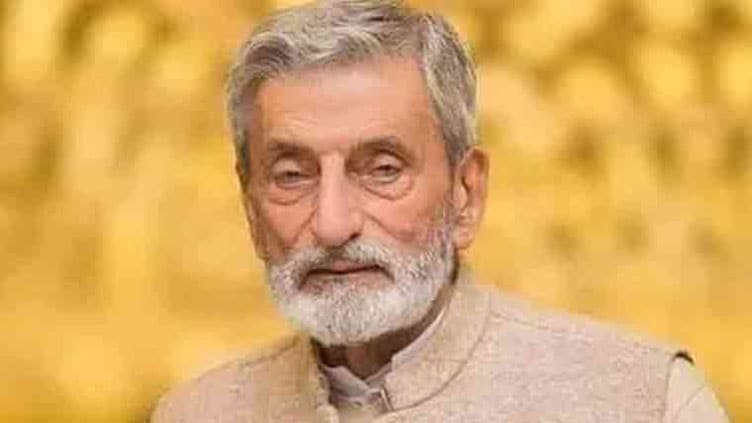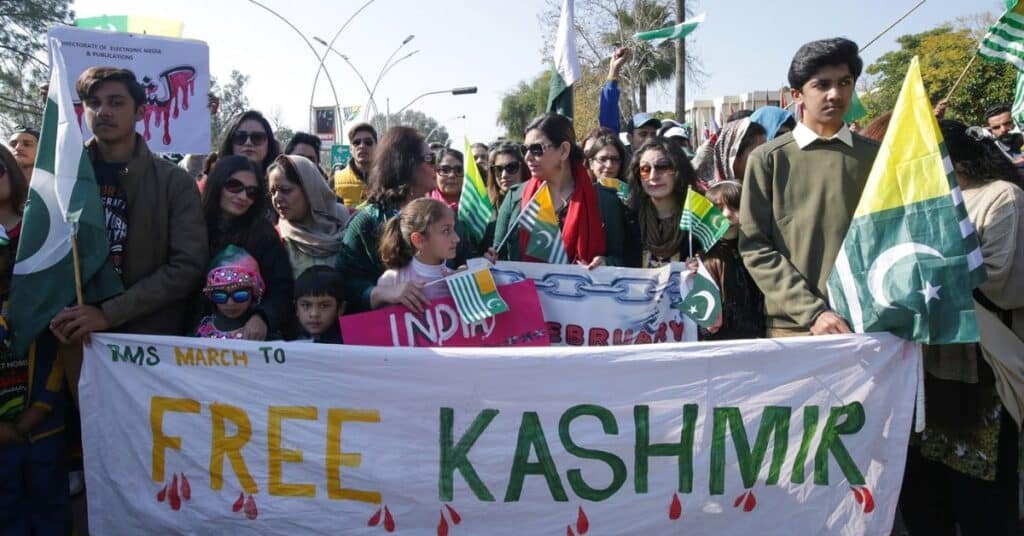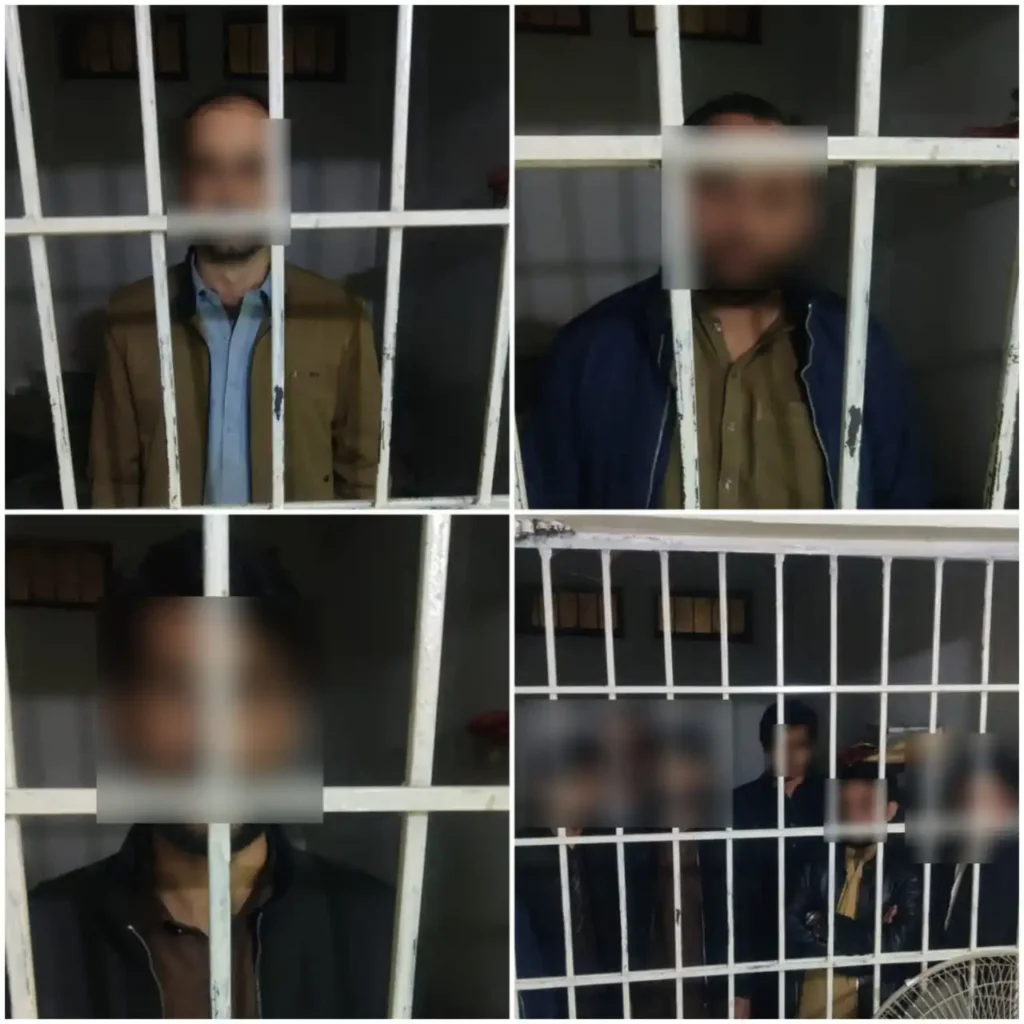PESHAWAR: After nearly six decades, Bilour House—once a cornerstone of not only Khyber Pakhtunkhwa and Pakistan but the entire region’s political landscape—has fallen silent. Haji Ghulam Ahmed Bilour, the founder of this significant political, social, and charitable hub, has relocated to Islamabad along with his only grandson Azeem Shabbir Bilour and his widowed daughter-in-law.
Before departing, the elderly Haji Bilour visited Bacha Khan Markaz to seek spiritual permission from the souls of his departed leaders, Bacha Khan and Khan Abdul Wali Khan. With a heavy heart, he left the city he once brought to life, the city that beat with his name in every street and alley, and where he was an inseparable part of people’s sorrows and celebrations.
Peshawar was not just a home to him—it was the final resting place of his beloved son Shabbir Ahmed Bilour, his martyred brother Bashir Ahmed Bilour, the late Ilyas Ahmed Bilour, and many other relatives and supporters of the Bilour family, including Shaheed Haji Hamdullah, Shaheed Noor Muhammad Khan, and Haji Bajauri. Thousands of the city’s poor and underprivileged had benefitted from his generosity, which now also leaves the city with his departure.
Haji Bilour has lived a life of extraordinary trials and tribulations, bearing the loss of his only son and other loved ones with remarkable patience and resilience. His exit from Peshawar marks the end of an era where the Bilour family not only represented the city in Parliament but also played key roles in commerce and industry since the early 1970s.
To write about the Bilour family and their contribution to Peshawar would require volumes, not just pages. Bilour House was not just a local political center—it hosted major political decisions impacting the entire province and nation. Esteemed leaders such as Nawab Khair Bakhsh Marri, Mir Ghaus Bakhsh Bizenjo, Sardar Attaullah Mengal, Prince Abdul Karim, Nawab Akbar Bugti, Ghulam Mustafa Jatoi, Sardar Sherbaz Khan Mazari, and even Indian political figures connected with Bacha Khan and Wali Khan’s movements have graced this house.
From Shaheed Benazir Bhutto and Nusrat Bhutto to Nawaz Sharif and Shahbaz Sharif, many prominent national leaders have visited this iconic place. Former Afghan presidents Hamid Karzai and Ashraf Ghani, along with numerous Afghan political and religious leaders, were also guests here. Following the death of renowned leader Khan Lala, a delegation from Afghanistan came to Bilour House to offer condolences and later visited his grave in Swat.
During the era of Shaheed Dr. Najibullah, ministers such as Suleiman Laiq, Aslam Watanjar, and others stayed for weeks at Bilour House. All of this history raises the question: why has Haji Bilour chosen to leave now? Only he can truly answer that.
But it is clear he has been politically and emotionally isolated since the deaths of his brother Bashir Ahmed Bilour and nephew Barrister Haroon Bilour. The results of the 2018 and especially 2024 elections seem to have deeply disheartened him. His fourth brother, Aziz Ahmed Bilour, had already relocated to Punjab. In the past, the Bilours would contest elections against influential families like the Syeds or Sethis of Peshawar—figures who, like them, had deep roots in the city’s political, social, and commercial spheres.
But today’s elected representatives—like Asif Khan and Shaukat Ali—were relative newcomers with little public recognition. Many voters likely didn’t even know their names or addresses, yet they were chosen as representatives. Shaukat Ali had some familiarity as a former Tehsil Nazim, but Asif Khan remained a virtually silent member of the Provincial Assembly during his term, and that same silence continues now in the National Assembly.
Meanwhile, financial challenges have also started to impact the Bilour family. Once owners of multiple industrial and business enterprises, they are now limited to one or two gas stations. The days of four Bilour Houses in Peshawar’s posh areas and four apartments in London are gone; the family now resides in just two homes.
In addition to public disappointment, Haji Bilour also expressed dissatisfaction with party leadership. He often complained about delayed or ignored communication from party officials, missing the respect and attention he once received from leaders like Khan Abdul Wali Khan.
After the 1990 elections, when Haji Bilour became a federal minister and Bashir Bilour a provincial minister, a journalist asked Wali Khan why so many Bilours were appointed to high office. He reminded them that during the 1970s, four Bilour family members were in jail—and now they deserved leadership roles. Soon after, Ilyas Bilour was nominated and elected to the Senate.
Whether one agrees or not, it’s an undeniable fact that the Bilour family truly represented Peshawar for decades. What is happening to the city now is visible to all.
Before entering politics, the Bilour family was already financially well-established. But now, as members of Pakistan Tehreek-e-Insaf, many new representatives from Peshawar and beyond have gone from being millionaires to billionaires—or even richer.
Haji Bilour hasn’t just left Bilour House—he has left Peshawar. The question now is: will the people of this “empty” Peshawar choose a true representative for their future, or will they continue to elect individuals lacking the sincerity and commitment of Haji Ghulam Ahmed Bilour?





